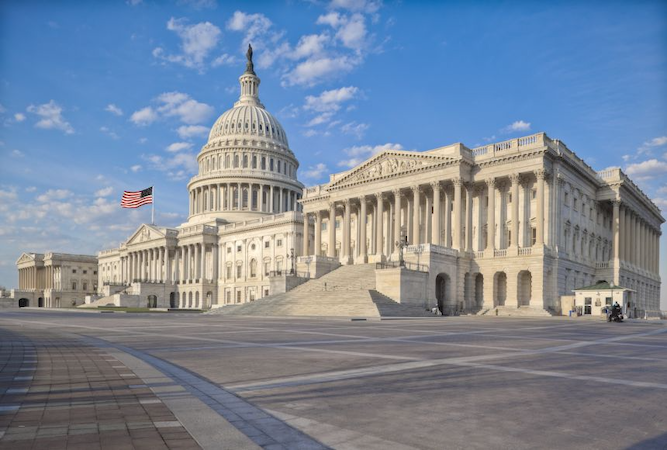Join Our Telegram channel to stay up to date on breaking news coverage
The upcoming stablecoin bill scheduled for discussion in the U.S. House of Representatives has caught the attention of leading trade groups representing a significant portion of U.S. financial bodies. The primary concern revolves around allowing state regulators the authority to approve stablecoin issuances.
Last week, two correspondences, with the American Bankers Association (ABA) as one of the signatories, were sent out. These letters, representing industry affiliations of both banks and credit unions, highlighted issues with the proposed comprehensive regulatory framework for stablecoins. This framework is set to be reviewed and potentially passed by the House Financial Services Committee this Thursday.
Expressing their apprehensions, the ABA, the Consumer Bankers Association, and the Credit Union National Association pinpointed their concerns about the existing provisions in the bill. They argue for equivalent federal scrutiny for state-sanctioned stablecoin entities, mirroring that of state-run banks. Similarly, these associations brought forward worries of increasing “systemic risk” and “arbitrage” opportunities based on the state regulatory inclusion in the bill.
The three national associations expressed, “The preliminary draft does not adequately permit federal regulators to supervise and approve state-sanctioned payment stablecoin entities. This could potentially offer non-banking bodies an opportunity to select the most favorable regulatory framework by state. Also, states might not be adequately equipped to independently regulate stablecoins, considering the potential of these issuers to grow rapidly into international entities.”
Stressing on the monetary implications of stablecoins, these associations urge the necessity of federal supervision ensuring both consumer safety and financial stability. Further, they recommended the bill to mandate more stringent asset reporting protocols, which includes both regulatory examinations and third-party audits of reserves. This is to ensure that the assets claimed by stablecoin issuers genuinely back the issued tokens.
Furthermore, they emphasized that restrictions or potential bans should be in place, limiting commercial enterprises from owning or influencing payment stablecoin entities. They believe such constraints are crucial to shield consumers from potential conflicts of interest.
Congressional Perspectives
There’s a possibility that opposition from the industry might impact both Democrats and Republicans’ stand on the bill, which has been a result of bipartisan discussions since the previous year. Notably, many Democrats, including the senior Democrat Rep. Maxine Waters, D-Calif., have expressed reservations regarding the extensive freedom the bill provides to state regulators regarding stablecoins. Despite this, the stablecoin bill holds promise for bipartisan endorsement and potential ratification.
In recent developments, House Financial Services Committee Chair Patrick McHenry, R-N.C., postponed the committee’s discussion on the stablecoin legislation to Thursday. However, the market structure law will still be debated on Wednesday.
Bitcoin’s Current Dynamics
Meantime, Bitcoin’s price remained relatively stable, hovering just over $29,000. Recent data reveals a trend where long-term holders are transitioning their coins to more secure storage solutions.
Currently, Bitcoin’s valuation, the most substantial cryptocurrency by market share, has maintained its position between $29,000 and $31,500 for the past few weeks. At 3:21 p.m. in New York, Bitcoin was trading at $29,259, a 0.4% rise over the previous 24 hours, as per CoinGecko’s data.
A recent weekly report from Bitfinex indicated an increased interest from traditional investors, leading to significant inflows into cryptocurrency-supported investment funds. The report further stated that Bitcoin balances on exchanges have seen a 32% reduction since its peak in March 2020. This decline in reserves on exchanges is seen as a positive indicator for Bitcoin’s future price, suggesting that investors are more inclined to accumulate the asset rather than trading it.
Related News
- U.S. House Committees Introduce Act to Regulate Cryptocurrency Industry Amidst SEC Crackdown
- Tether Stablecoin (USDT) Price Explained
- The SEC and Their Showdown with Crypto
- 15 Best DeFi Coins to Buy in 2023 – Decentralized Finance Tokens
Best Wallet - Diversify Your Crypto Portfolio
- Easy to Use, Feature-Driven Crypto Wallet
- Get Early Access to Upcoming Token ICOs
- Multi-Chain, Multi-Wallet, Non-Custodial
- Now On App Store, Google Play
- Stake To Earn Native Token $BEST
- 250,000+ Monthly Active Users
Join Our Telegram channel to stay up to date on breaking news coverage


